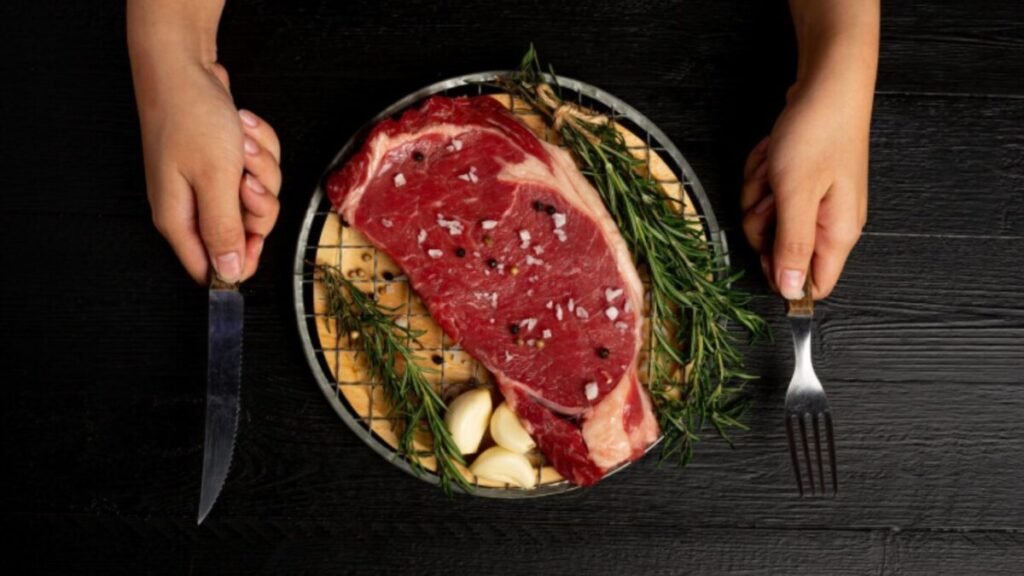The Carnivore Diet Revealed: Why Ditching Fruits and Veggies Might Be Riskier Than You Thought

The Carnivore Diet: A Trend with Real Consequences
In the world of social media, we see countless images of plates filled with meat, ribs, and burgers smothered in butter. This trendy “primitive” aesthetic is actually part of a dietary plan that completely omits fruits, vegetables, legumes, and grains.
Many fitness influencers and celebrities have jumped on this bandwagon, claiming rapid improvements in energy, digestion, and focus. However, the scientific community has yet to fully support these assertions.
According to National Geographic, this diet trend, touted as a return to an “ancestral” lifestyle, fails to recognize that modern meat production differs significantly from that of our hunter-gatherer ancestors. The United Nations has also raised concerns about the impact of intensive livestock farming on the global food system.
The Carnivore Diet: What It Promises and How It Affects the Body
The carnivore diet takes the concept of “low-carb” to the extreme, with followers consuming only red meat, eggs, and fatty dairy products. They argue that by cutting out carbohydrates, the body enters ketosis, burns fat for energy, and reduces hunger.
However, the initial weight loss experienced is often due to the loss of glycogen and body water, rather than sustained fat burning. Gastroenterologist Wendi LeBrett explains that some feel better on this diet because they avoid FODMAPs, a type of fermentable fiber that can cause bloating in individuals with irritable bowel syndrome. Nevertheless, this relief can be achieved through a balanced diet without completely eliminating vegetables.
The Carnivore Diet: The Dark Side of a Fiber-Free Diet
Experts are particularly concerned about the lack of fiber, vitamin C, antioxidants, and plant compounds in the carnivore diet that serve crucial protective functions. Nutritionist Emily Prpa warns that without fiber, the beneficial microbiota in the intestine diminishes, potentially leading to digestive discomfort or intolerances when plant foods are reintroduced.
Fiber not only aids in regulating intestinal transit but also plays a role in reducing the risk of various diseases, including cancer, diabetes, and heart conditions. A fiber-rich diet has been shown to decrease the overall cancer risk by up to 22% and colorectal cancer risk by up to 31%, as per a WHO review.
On the flip side, excessive consumption of animal proteins can strain the liver and kidneys, increase the risk of developing stones, and accelerate inflammatory processes. Studies have linked high animal protein intake to an increased risk of certain diseases, such as cardiovascular disease, depression, and cognitive impairments.






